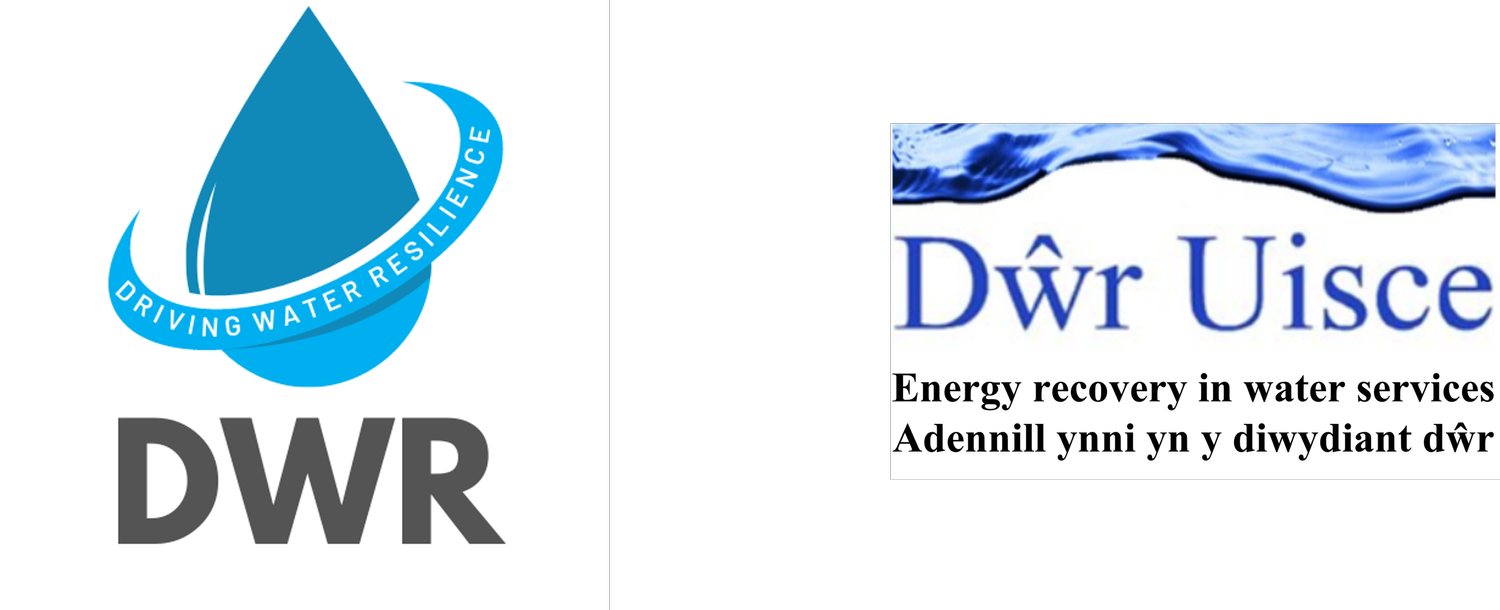By Roberta Bellini
The Dŵr Uisce Online Events Portfolio was planned and designed with the aim to share the research findings and project progress with a broad audience of interested participants. The Panelist Discussion on Heat Recovery potential in leisure centres and the Dŵr Uisce Sustainability Webinar Series, a programme of four online events covering the topics of Micro-hydropower, Drain Water Heat Recovery and Benchmarking water and energy efficiency, were featured in the portfolio. The events took place during the period February to April 2021 and have proven very successful.
Dr Aisha Bello-Dambatta, from Bangor University, hosted the Panelist Discussion on February 23rd. The panelists discussed the opportunities and challenges for heat recovery in leisure centres drawing from their professional experience. Twenty four attendees from leisure centres and other SMEs in Ireland and Wales took part in the event and discussion.
The Dŵr Uisce Sustainability Webinar Series was launched back in December 2020 with four events designed to provide the audience with insights and details of our various research areas, including demonstration of practical applications of the technological solution and tools being developed.
On February 24th, Dr Daniele Novara from Trinity College facilitated the first webinar of the series on EXPLORING MICRO-HYDROPOWER. In his presentation he covered the technical details, opportunities and challenges of Pump-As-Turbine (PAT) installations in ‘micro’ and ‘pico’ generation schemes, as well as the specifications of two PAT applications designed and deployed at two demonstration sites, one in Ireland and one in Wales. The webinar attracted over 30 participants from a range of fields, from water-energy companies to research institutes, from small business to public bodies and charities.
March was dedicated to the opportunities and applications of heat recovery from drain water with two webinars on 10th and 24th. In the first webinar, RECOVERING HEAT FROM DRAIN WATER- THE OPPORTUNITY, Dr Murali and Dr Singh, Trinity College Team members, took participants through the background, feasibility and opportunities for recovering the embedded wasted heat in wastewater at domestic, industrial and wastewater collection and treatment levels. The researchers gave an overview of both what they have achieved so far and their future research plans. Participants engaged with the facilitators via the chat asking questions and providing feedback. On March 24th, Isabel Shestak from the Bangor Team and Dr Jan Spriet, previously in the Trinity Team, introduced participants to the technical requirements and potential savings of drain water heat recovery in commercial kitchens. An innovative and user- friendly Heat Recovery Tool for commercial kitchens was launched on this occasion and participants were invited to test it using their own commercial kitchen data or a dataset provided on the day. Very positive feedback was received, with most of the participants saying their results were showing potential savings in costs and greenhouse gas emissions.
The last webinar, BENCHMARKING WATER AND ENERGY EFFICIENCY, was held on April 14th. Dr Annum Rafique, from the Bangor Team, explained what benchmarking is and how it can help businesses and organisations to improve their energy use in relation to water heating requirements. It was followed by the details of a study of benchmarking for the hotel sector and the opportunities for increased efficiency presented by Nathan Walker, Bangor University.
Screenshots form the four webinars of the Sustainability Series
The Dŵr Uisce Team was delighted to welcome over 100 participants to the five events, some of them attending more than one event. Feedback was received from more than a third of the participants; when asked how they would rate the events, 88% of the respondents thought they were ‘Excellent’ or ‘Very Good’. All of the respondents thought the events were either ‘extremely’ or ‘very’ organised.
The audience was a mature audience with some prior knowledge on the topics; nonetheless the webinar contents offered them the opportunity to further their knowledge and understanding. In fact, most of participants said they could use some the information and knowledge learnt from the events. There was a clear appetite for future events, particularly as an opportunity to share the results of long term monitoring at the demonstration sites.
Results of the feedback received from the participants.
In terms of growth and consolidation, the Water- Energy Network has expanded from 105 organisations (Nov ’19) to a current total of 141.


